Small San Francisco-based studio Pacific Helm released Camera Noir on Tuesday, a simple black and white photography app for the iPhone, iPad and iPod touch that produces top notch images.
With just three filters — all monochrome — Camera Noir is seemingly taking a step in the opposite direction of most photo apps made for iOS, which contain an almost overwhelming number of image enhancement options.
The app feels stripped down and reminiscent of classic film cameras like Leica's M3 which are so intuitive and well designed that they just get out of the way, allowing photographers to focus on making great images.
Camera Noir has three contrast modes, or brightness filters: Lo, Med and Hi. Like a few other photo apps, a live preview of the chosen filter's effect is displayed on screen, and users can toggle between the three modes by tapping on a dedicated button at the bottom of the screen.
Focus and exposure adjustments are accomplished by touching on an area of interest, much like the implementation seen in Apple's iOS Camera app. With such an emphasis on light levels and contrast, it would have been nice to see a multitouch system that allows for discrete control over focus and exposure.
One of the few "modern" functions in Camera Noir is a digital level that changes from green to yellow to red as a user tilts their iPhone further from horizontal. The graphical representation is an extremely thin line that runs across the middle of the virtual viewfinder in both landscape and portrait modes.
Also part of the spartan preview window is a center mark and square framelines for composing Instagram-ready shots. Aside from a small area pushed to one edge of the screen, which holds buttons for shutter control, contrast control and photo library access, the display is dominated by the live scene.
Finally, Camera Noir has a feature to import and apply its black and white filters to previously snapped photos from a user's Camera Roll.
Of course, the app's output is not true black and white, as the iPhone uses a CMOS sensor with color filter array, but the desaturated results are still quite good. Blacks are inky, whites are rendered faithfully and intermediate grays are uncolored.
Camera Noir is priced at $1.99 and can be downloaded through the App Store.
 Mikey Campbell
Mikey Campbell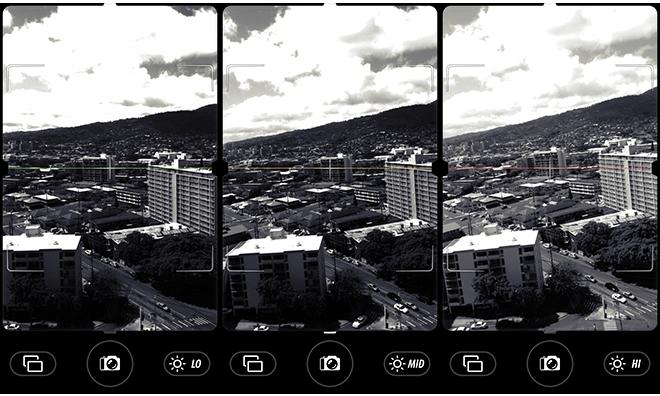




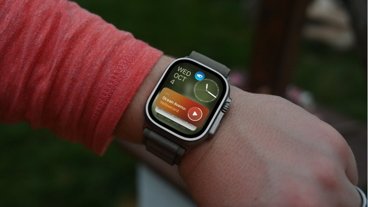


-m.jpg)






 William Gallagher
William Gallagher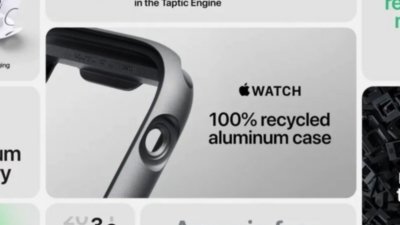
 Malcolm Owen
Malcolm Owen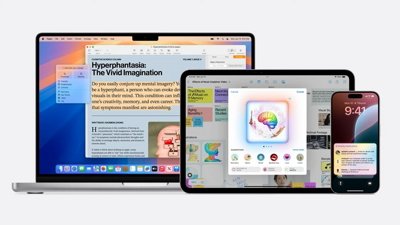


 Andrew O'Hara
Andrew O'Hara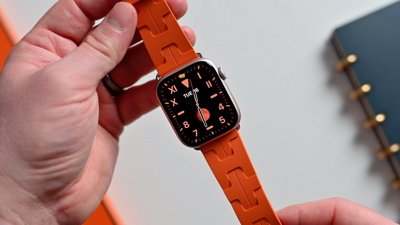
 Andrew Orr
Andrew Orr
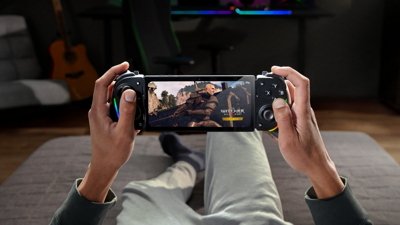

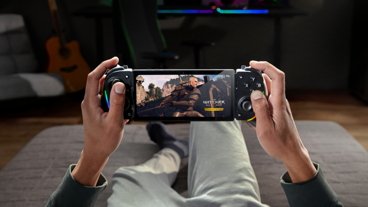

-m.jpg)






8 Comments
Beautiful is the new app tagline; every new app being pushed is "beautiful". Phooey. I read Gruber's plug for this app earlier today and bought it. I love my iPhone photo apps.
But beware: it crashes every single time I attempt to save a photo with it using my 4S. I don't think these guys ever test these app; the articles are more like ads.
I mean, really, how hard can it be to build a stable app that really does nothing but provide a b&w filter? Not worth the 2 bucks.
Good, now I don't need to post a review on the App Store
Beautiful is the new app tagline; every new app being pushed is "beautiful". Phooey. I read Gruber's plug for this app earlier today and bought it. I love my iPhone photo apps.
But beware: it crashes every single time I attempt to save a photo with it using my 4S. I don't think these guys ever test these app; the articles are more like ads.
I mean, really, how hard can it be to build a stable app that really does nothing but provide a b&w filter? Not worth the 2 bucks.
Good, now I don't need to post a review on the App Store
I just bought the app too after reading the article. The B&W effects are really nice but I agree it is not stable. I'm running it on my 4S too, no crashes but loading the camera roll up within the app is really slow (not sure if its due to my 5000 photos already stored on there). The real time filtering also slows things down a bit in the viewfinder. Hope they can optimize the app as there is some potential if not a novelty.
Just another crap "photog" app that takes a normal picture and then fucks up the contrast of colours for "dramatic effect." There is no photographer alive of any talent at all that would think any of the photos shown in this article are anything but overexposed garbage. Similarly, no decent photographer would use any of that crap Instagram filter stuff either. Real photographers spend most of their lives making *good* pictures and trying desperately to avoid overexposure, undersaturated, off-colour "mistakes." How lovely that we now live in a generation that thinks that applying filters to recreate the "bad" photos of the past is the new "good." Pictures no longer deteriorate with time, so we have to add the deterioration ourselves and screw up our own pictures before their time, and on purpose. In five years, once the camera is truly gone for good, people will look back on all these attempts to add "artistic" effects to pictures to evoke the past as simply embarrassing. The only pictures with the "aged" effect then, will be the truly old pictures from the 60's and 70's and a small selection of early digital pictures made when people sadly believed that this was "cool." In the end, it's just a misplaced subconscious nostalgia for the death of the old-style camera and it can't disappear fast enough for me.
Just another crap "photog" app that takes a normal picture and then fucks up the contrast of colours for "dramatic effect." There is no photographer alive of any talent at all that would think any of the photos shown in this article are anything but overexposed garbage. Similarly, no decent photographer would use any of that crap Instagram filter stuff either.
Real photographers spend most of their lives making *good* pictures and trying desperately to avoid overexposure, undersaturated, off-colour "mistakes." How lovely that we now live in a generation that thinks that applying filters to recreate the "bad" photos of the past is the new "good."
Pictures no longer deteriorate with time, so we have to add the deterioration ourselves and screw up our own pictures before their time, and on purpose. In five years, once the camera is truly gone for good, people will look back on all these attempts to add "artistic" effects to pictures to evoke the past as simply embarrassing. The only pictures with the "aged" effect then, will be the truly old pictures from the 60's and 70's and a small selection of early digital pictures made when people sadly believed that this was "cool."
In the end, it's just a misplaced subconscious nostalgia for the death of the old-style camera and it can't disappear fast enough for me.
No dispute - these are poor sample photographs. But are you saying that, for "real" photographers, B&W photography is not a valid art form?
Distortion is fine in moderation. Obviously if you browse Instagram you'll only see artificially terrible pictures; that's the site's entire point. But making a wedding portrait slightly blurred/glowing, using a star filter for shiny things... even HDR has beneficial uses. Try not to get in the mindset of a photography method having no value because some people overdo it.